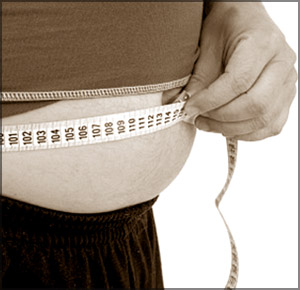Health
Brush your teeth and avoid heart attacks and strokes
by Dr. D. P. Atukorala
It is common knowledge among medical personnel that risk factors for
heart attacks are smoking, high blood cholesterol, diabetes,
hypertension, obesity, lack of exercise, family history of heart attacks
and stress. In addition to common risk factors mentioned above, new
research shows that neglected gums and teeth is another risk factor for
heart attacks.
 According to the World Health Organization (WHO) heart disease is the
number one killer worldwide claiming about 17 million lives every year
and is the leading cause of death both in the developed countries and
developing countries and in spite of all the precautionary measures
taken by all the governments, the coronary heart disease epidemic is
getting worse. According to the World Health Organization (WHO) heart disease is the
number one killer worldwide claiming about 17 million lives every year
and is the leading cause of death both in the developed countries and
developing countries and in spite of all the precautionary measures
taken by all the governments, the coronary heart disease epidemic is
getting worse.
The WHO now recognise that bacterial infections of the gums and
periodontal infection is an independent risk for heart attacks.
In other words it does not matter how fit and healthy you are, you
are adding your chances of getting heart disease by having bad teeth and
bad gums.
There are up to 700 different bacteria in the human mouth and failing
to scrub one's teeth helps those germs to flourish. Most of the germs in
your oral cavity are benign (innocent), some are essential to good
health, but a few can trigger a biological cascade leading to diseases
of the arteries linked to heart attacks and strokes according to new
research by Howard Jenkins of the University of Bristol (U.K.).
The mouth is the dirtiest place in the human body and is dirtier than
anus, rectum and vulva. According to Steve Kerrigan of the Royal College
of Surgeons in Dublin if you have an open blood vessel from bleeding
gums, bacteria will gain entry to your blood stream and once inside the
blood, the bacteria stick on to certain "cells" called platelets causing
them to clot inside the coronary vessels and thus decreasing blood flow
to the heart.
Out of the oral bacteria streptococcus guardian and Streptococcus,
sanguines are common bacteria that can cause heart attacks according to
Professor Jenkins from the University of Bristol.
It has been shown that gingivitis if untreated can lead to
atherosclerosis which, as the readers are aware is the thickening,
tortuosity and build up of fatty plaques within arteries. In about 98%
of patients with heart attacks, primary cause of heart attacks is
atherosclerosis. A research team headed by Professor Symour, the Dean of
the Faculty of the Dentistry at the University of Otago based their
findings on an analysis of the effect of regular tooth brushing in a
group of patients who were potential candidates for heart attacks.
Seymour explained that a variety of proteins produced by the bacteria
initiates atherosclerosis and helps it to progress.
According to world Helth Organisation (WHO) neglected teeth can be
considered as an independent risk factor for heart attacks and strokes
as mentioned earlier.
Chronic infection and coronary heart disease
There is scientific evidence to show that chronic infection (e.g.)
periodontal disease could increase the systemic inflammatory response
and directly increase the risk of heart disease and stroke.
Major infectious organisms are Chlamydiae pneumonia, Cytomegalovirus
and Helobactor pylori, Well-known periodontal pathogens include
Porphyromonas gingivalis, Treponema denticola and Actionbacillius.
There is scientific evidence to show that Gram-negative flora
associated with periodontal disease play a significant role in
atherosclerosis and coronary heart disease (angina and heart attacks).
There is also evidence to show that patients with coronary heart
disease (CHD) have significantly increased prevalence of Gram-negative
anaerobic bacteria on tooth surface compared with periodontally healthy
reference group.
Dental plaques containing Gram-negative organisms are significantly
higher on individuals who have experienced either unstable angina or a
myocardial infarction just before the dental testing. Majority of
patients with C H D and Gram-negative Organisms tested at University
dental clinics in Nichigan University had periodontal disease.
In the CHD group, there was 68% rate of infection corresponding well
with nearly 50% rate of periodontal disease in patients with acute
myocardial infarction (heart attacks).
In two separate case control studies involving 100 patients with
acute myocardial infarction and 102 controls (from the community
selected at random) indices of dental health were significantly worse in
patients with acute myocardial infarction than in controls.
Subsequently in prospective study of 214 individuals with C H D
followed up for 7 years dental health was significantly a predictor of
coronary events when controlled for following factors: age sex,
socio-economic status, smoking, hypertension, number of previous
infarcts, diabetes, B M I, and serum lipids (Clinics of infectious
diseases 1998, 26, 719-734).
In a recent study periodontal disease was found in 48% of patients
with myocardial infarction, compared with 17% of controls (American
Heart Journal 2004, 147).
Major clinical implications from these studies apply to both primary
and secondary prevention of C H D.
A strong (20-30%) reduction in coronary events and strokes can be
expected both in healthy persons and in those with CHD and strokes who
achieve and anti-risk lifestyle changes including use of statins and
blood pressure control.
At present there is no proof that anaerobic periodontal infections
can be treated with short term use of metronidazole given for a period
of 5 years, whether improving periodontal health will reduce C H D
requires controlled trials. Nevertheless, the prevention and treatment
of periodontal disease merits consideration. (Low, Circulation 2004)
Note:
The above article is based on a lecture delivered to the General
Dental Practioners Association recently.
Beat that beer belly
 The spare tyre, the love handles, the muffin top, the beer gut. For
some men their central obesity or their being 'apple shaped' is a source
of perverse pride; sort of a badge of honour. But, for those that want
to shed the extra kilos, the task can be a daunting one, and can be
tough without the right support, so here we take a look at how best to
tackle the dreaded beer belly. The spare tyre, the love handles, the muffin top, the beer gut. For
some men their central obesity or their being 'apple shaped' is a source
of perverse pride; sort of a badge of honour. But, for those that want
to shed the extra kilos, the task can be a daunting one, and can be
tough without the right support, so here we take a look at how best to
tackle the dreaded beer belly.
How does the beer belly develop?
Recent European research has found that the link between drinking
beer and beer bellies is not as strong as was previously thought.
Teams of researchers in the UK and the Czech Republic, writing in the
European Journal of Clinical Nutrition, even went so far as to call the
link a myth.
However, their Danish colleagues at the Centre for Alcohol Research
showed that binge drinking once or twice a week was far more likely to
lead to a beer belly than drinking the same amount over the whole week.
Whatever the link to alcohol, it is widely agreed that overeating and
lack of exercise are the main reasons for a beer belly to grow.
What are the health risks?
Doctors unanimously agree that having a beer belly increases the
likelihood of developing high blood pressure and high cholesterol and
increases the risk of heart disease, diabetes or having a stroke.
Lose the beer belly for good
Although some of the thousands of diet books and programs on offer
might claim to offer a guaranteed solution to weight loss, there is no
quick fix.
Sometimes the oldest methods are the best and the right mix of
healthy eating and drinking, exercise and a positive attitude are the
best way to shed unwanted fat. Before starting any weight-loss program
it is a good idea to consult a doctor.
Before you start
Measure your waistline. This may seem simple but knowing where you
started can do wonders for your confidence a few weeks into the process
when the differences start to be noticeable. The tape measure doesn't
lie! Work out your BMI, compare it to the recommended range, and find
out how far you are from your target weight.
Healthy eating and drinking
Balance is the key word when it comes to eating and drinking. It is
important to keep eating a range of different foods so the body gets all
the nutrition it needs but here are a few simple rules that should help.
- Try to reduce overall calorie intake.
- Cut down on fatty foods such as hot chips and meat pies. Some fat
is fine. but keep it to a minimum.
- Eat plenty of fruit and vegetables.
- Try to cut down on alcohol and try switching to light or
low-calorie beer.
- Snacking between meals can undo the good work. Fruit snacks provide
a healthy, low-fat alternative to chips or chocolate.
Exercise
If the idea of endless sit-ups fills you with despair, you're in
luck.
Although great for strengthening the abdominal muscles, contrary to
popular belief, sit-ups won't do much to get rid of a beer belly or help
with weight loss in general.
What does burn fat is aerobic or cardio-vascular exercise which gets
the heart rate up and gets you sweating. This can be achieved through
anything from fast walking to swimming, rowing, cycling, jogging or
squash.
Subject to advice from a doctor, 30 minutes of aerobic exercise three
times a week should be enough to get the belly shrinking. If that seems
like too much, start with 10-minute sessions and gradually build it up.
Ten to 12 weeks should be soon enough to start to see a noticeable
difference.
Self-belief and a positive attitude
Without the right attitude, no attempts at beating the beer belly
into submission are going to work. But, as daunting a prospect as weight
loss might seem, a decent measure of self-belief and willpower are half
the battle.
The rest might be as straightforward as a fast walk in the park.
You and your baby
by Dr. Vijith Vidyavibushana Consultant
Gynaecologist, Castle Street Hospital for Women
Diagnosis of pregnancy
Missing a period can be a happy event or sometimes it may be the
opposite. Those who are planning a pregnancy would be pleased and those
who are not planning to get conceived would have worries.
If there is a delay in ovulation(release of an egg) or if ovulation
does not occur, the onset of menstruation can get delayed. The other
reason for missing a period is a pregnancy. Everybody knows that a
pregnancy test will solve that problem.
What is the basis of the 'pregnancy test'?
Once the pregnancy burrows into the lining of the womb, the early
placenta starts to produce a hormone called Human chorionic
Gonadotrophin (hCG) which is appears in mother's blood.
This hormone is filtered from mother's blood into her urine through
the kidneys. When you realize that you have missed a period the
pregnancy is two weeks old and there will be sufficient hormones in
mother's blood to appear in urine.
Detection of hCG in mother's urine is the basis of the pregnancy
test.
There are various methods to detect hCG in mother's urine and the
success of the method depends on the concentration of this hormone in
mother's urine and the ability of the test to detect this. Early morning
urine has the highest concentration of this hCG.
The test strips which can be bought over the counter (Home pregnancy
test kits) are not as sensitive as the methods they use in laboratories
to detect hCG.
How early can I detect that I am pregnant?
With the latest test kits, pregnancy can be detected as early as the
first day after missing a period.
If you are using a home pregnancy test strip it is always better to
use it on early morning sample of urine. If the test kit is a sensitive
one you can give a sample of urine at any time of the day.
Is there a blood test to detect pregnancy?
Yes, there is. The pregnancy hormone hCG can also be detected in the
blood by doing a blood test. This test has to be recommended by a doctor
if there is an indication. This test is not freely available and is
costly.
This test is done to aid the diagnosis of an ectopic pregnancy or
occasionally to diagnose a miscarriage in an early stage of pregnancy.
Rising levels of this hormone indicates an ongoing pregnancy either
inside or outside the lining of the womb.
In more than eighty five out of hundred pregnancies inside the womb,
this hormone levels roughly doubles with in 48 hours. This doubling does
not occur in cases of ectopic pregnancies where there is a slower rise
with in 48 hours.
Can I undergo an Ultrasound scan to check if I am pregnant?
Yes you can. But it is not necessary for everybody to have an
Ultrasound scan to check for a pregnancy. If you are at a higher risk of
having an ectopic pregnancy, you have to have an Ultrasound scan as soon
as you find that you are pregnant.
Internal Ultrasound scan (Transvaginal scan-TVS) can detect the
pregnancy sac inside the womb as early as four weeks after missing a
period.
The heart beat of the baby can be seen on 95 out of hundred
pregnancies at six weeks after last menstrual period when the length of
the baby is about 6 millimetres. Previous ectopic pregnancy, previous
surgery in the lower tummy (Pelvis), history of pelvic infection,
previous tubal surgery and history and treatment of subfertility are all
risk factors for an ectopic pregnancy.
**************
Help your child to sleep well
 Set a regular time for bed each night and stick
to it. Set a regular time for bed each night and stick
to it.
Establish a relaxing bedtime routine, such as
giving your child a warm bath or reading him or her a story.
Make after-dinner playtime a relaxing time. Too
much activity close to bedtime can keep children awake.
Avoid feeding children big meals close to
bedtime.
Avoid giving children anything with caffeine
less than six hours before bedtime.
Set the bedroom temperature so that it's
comfortable - not too warm and not too cold.
Make sure the bedroom is dark. If necessary,
use a small nightlight.
Keep the noise level low.
**************
|
